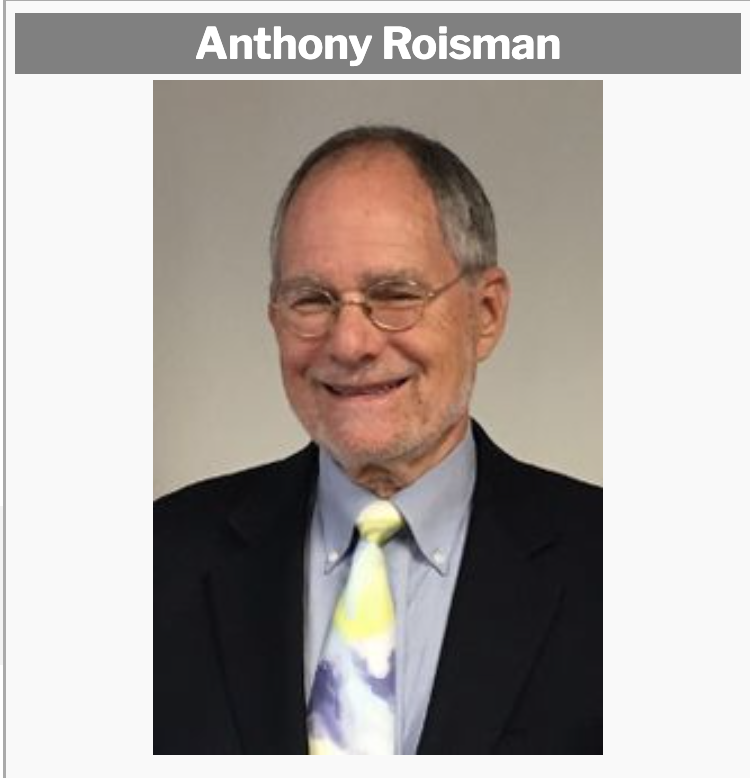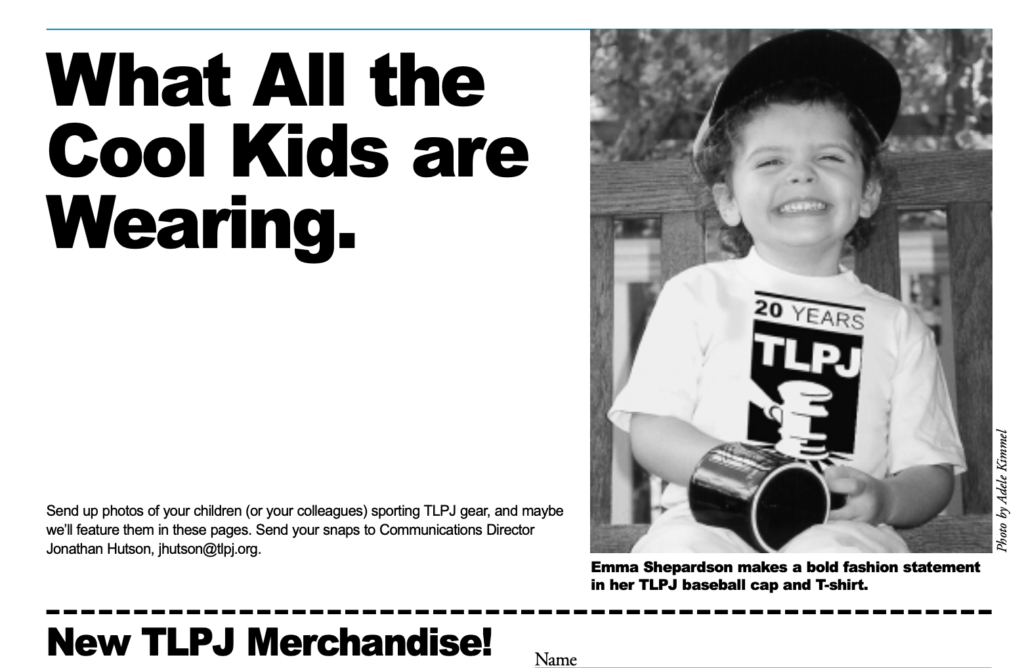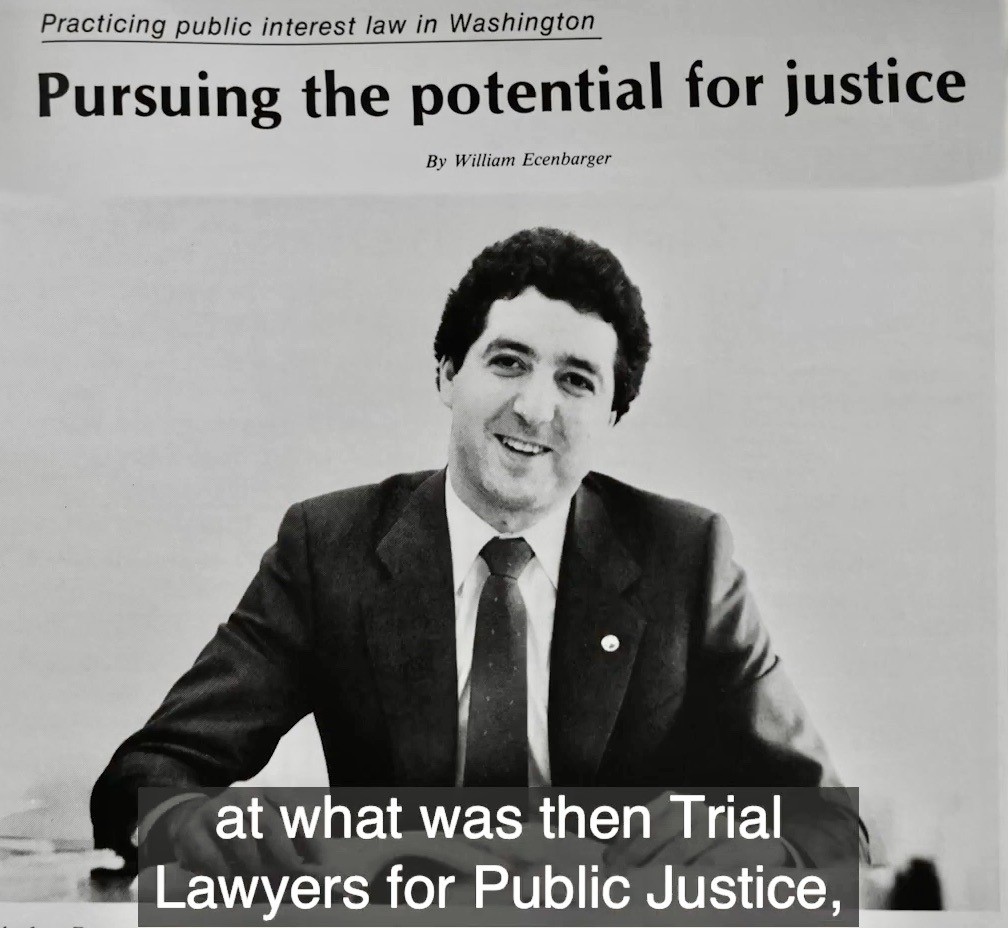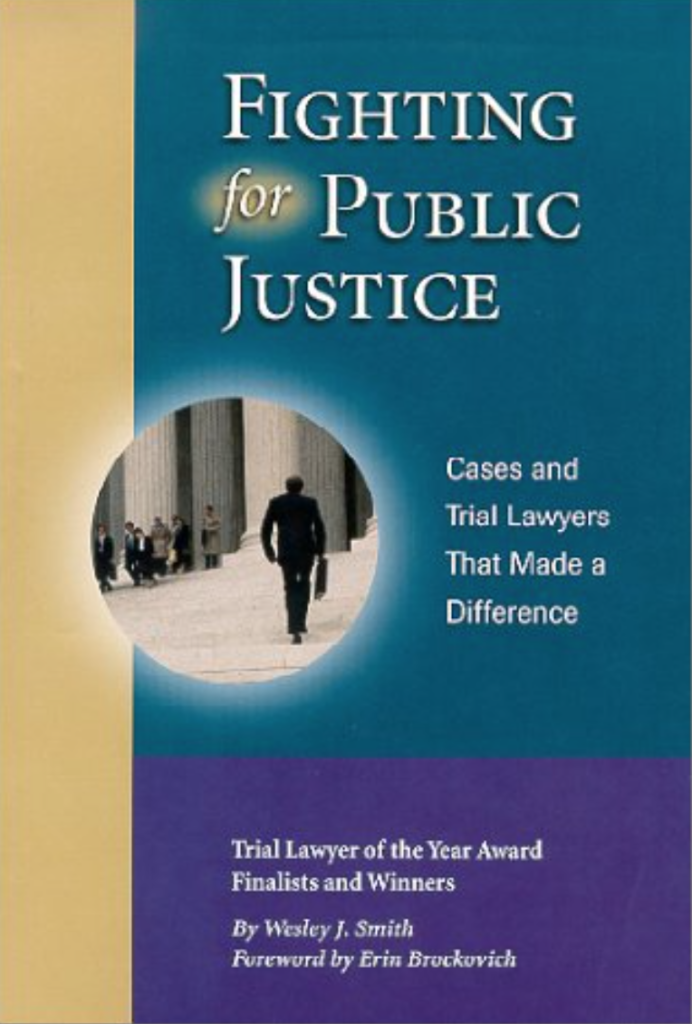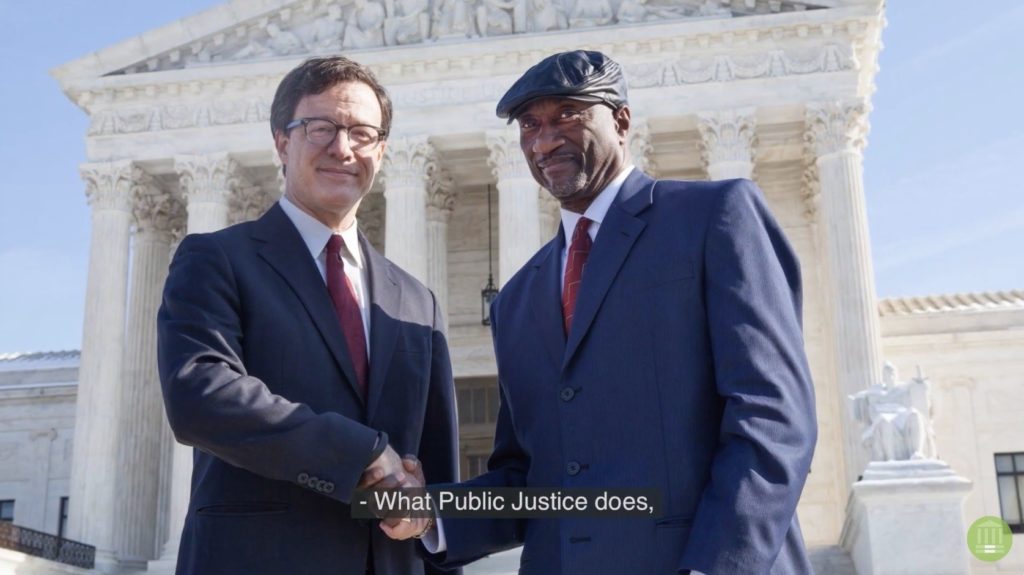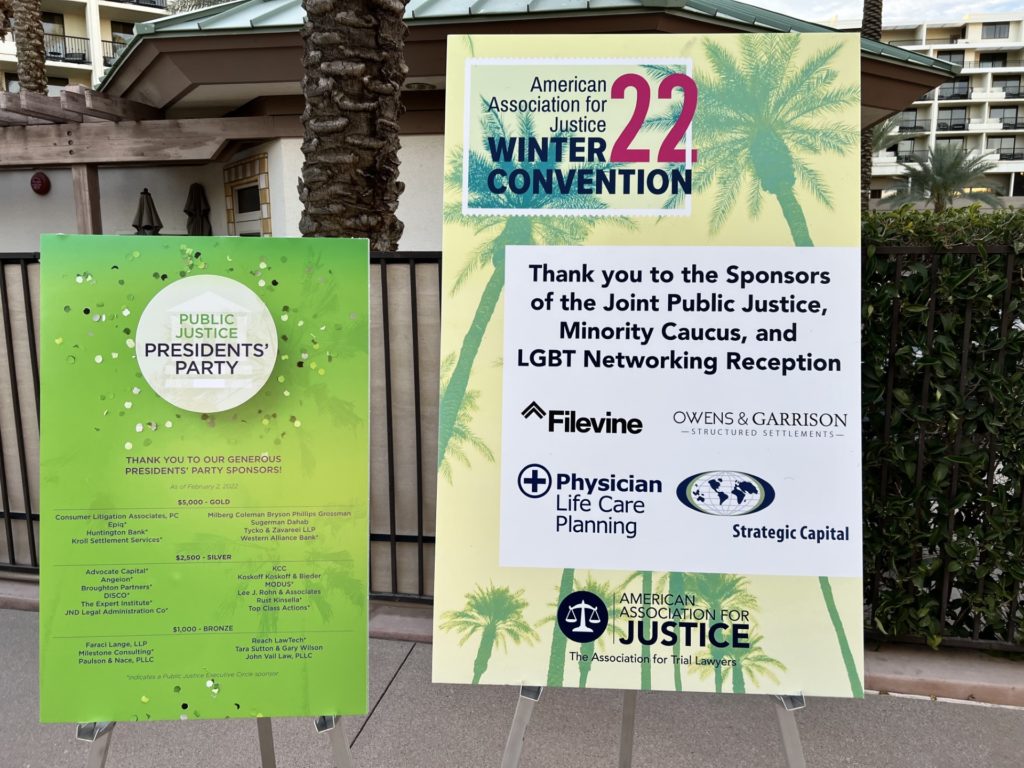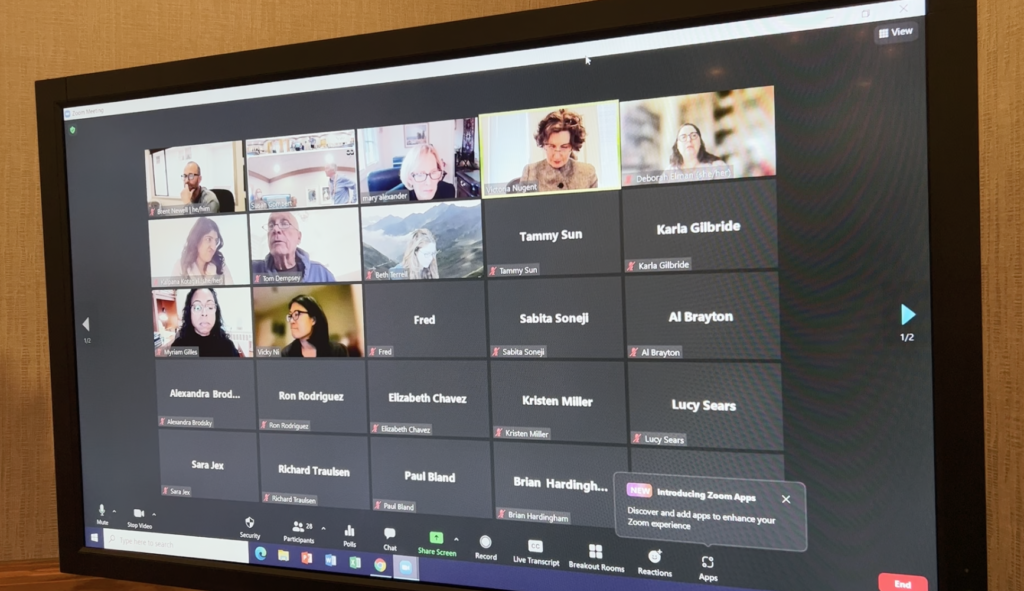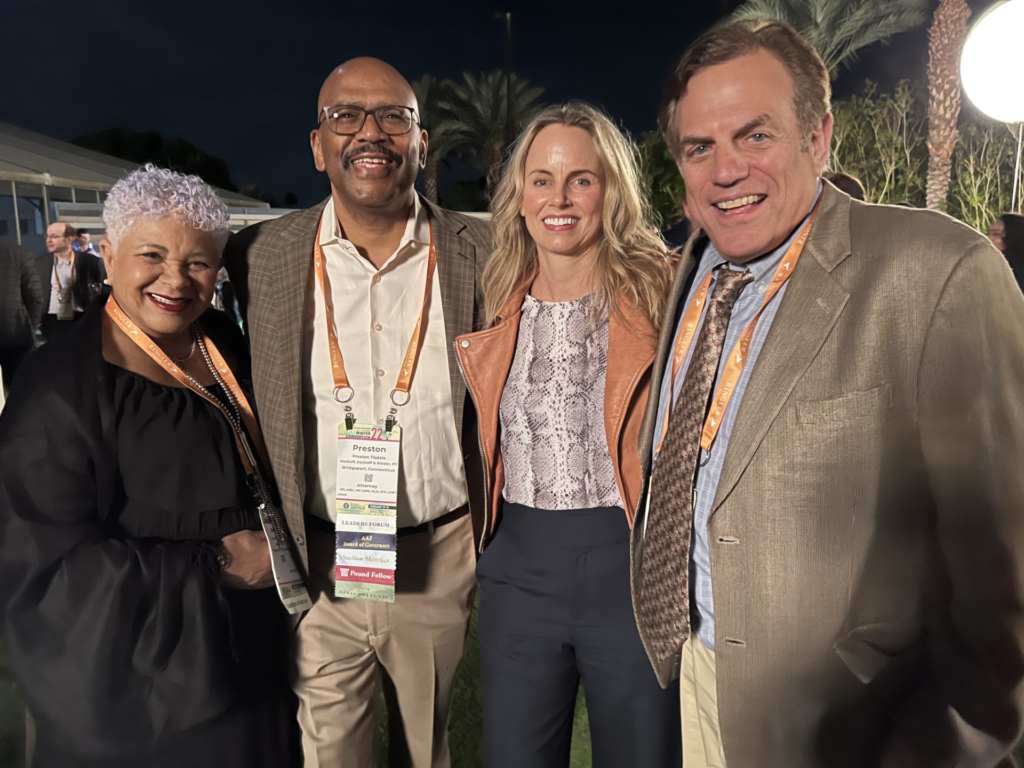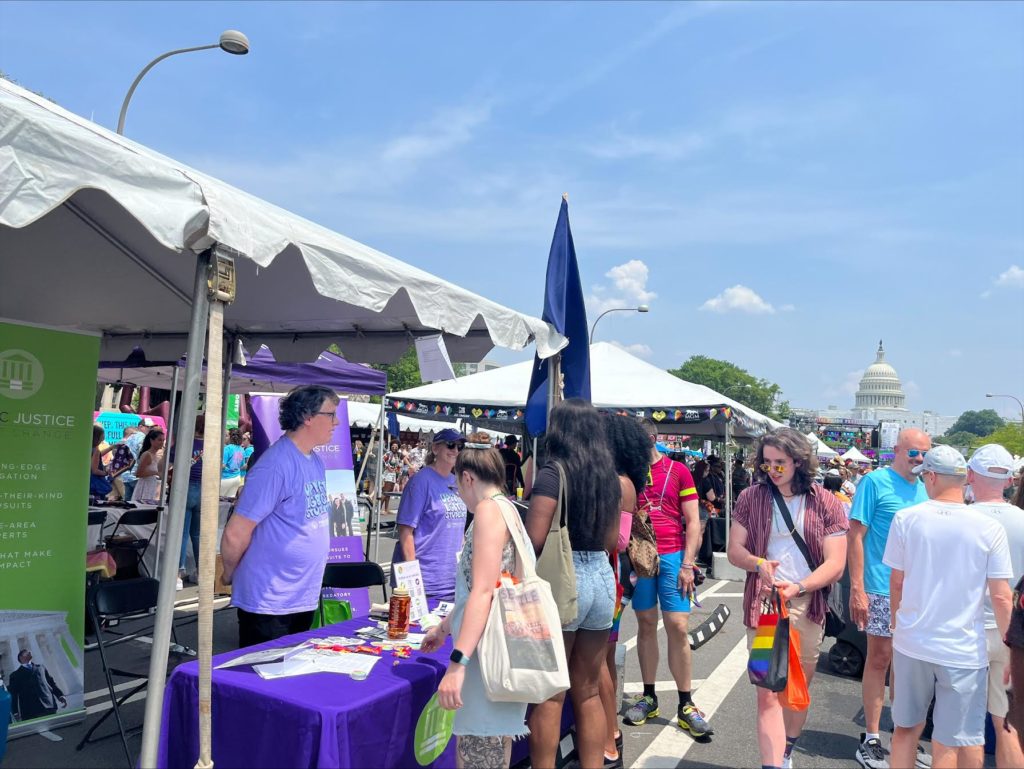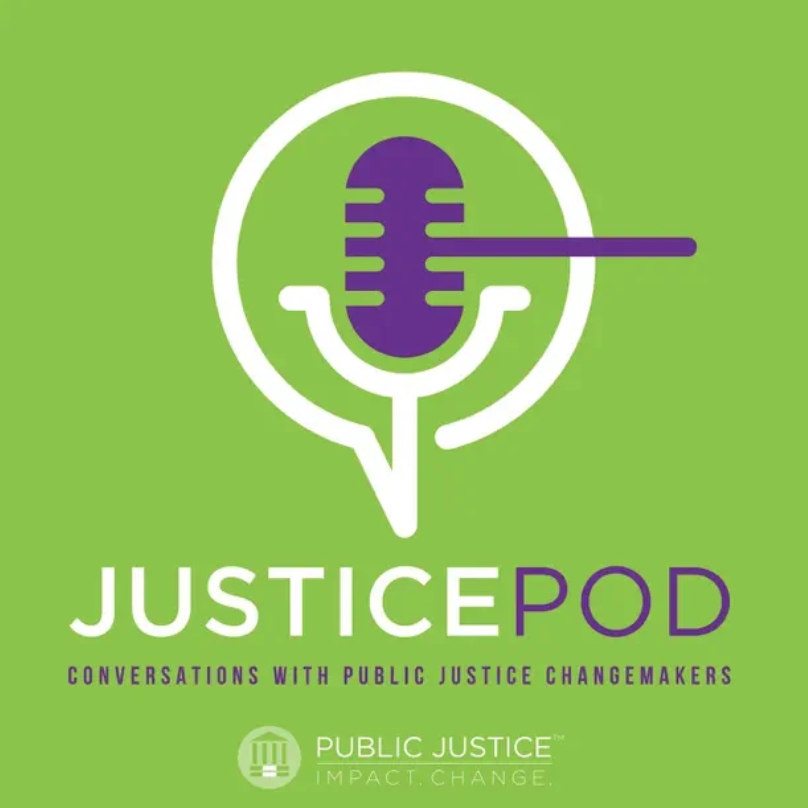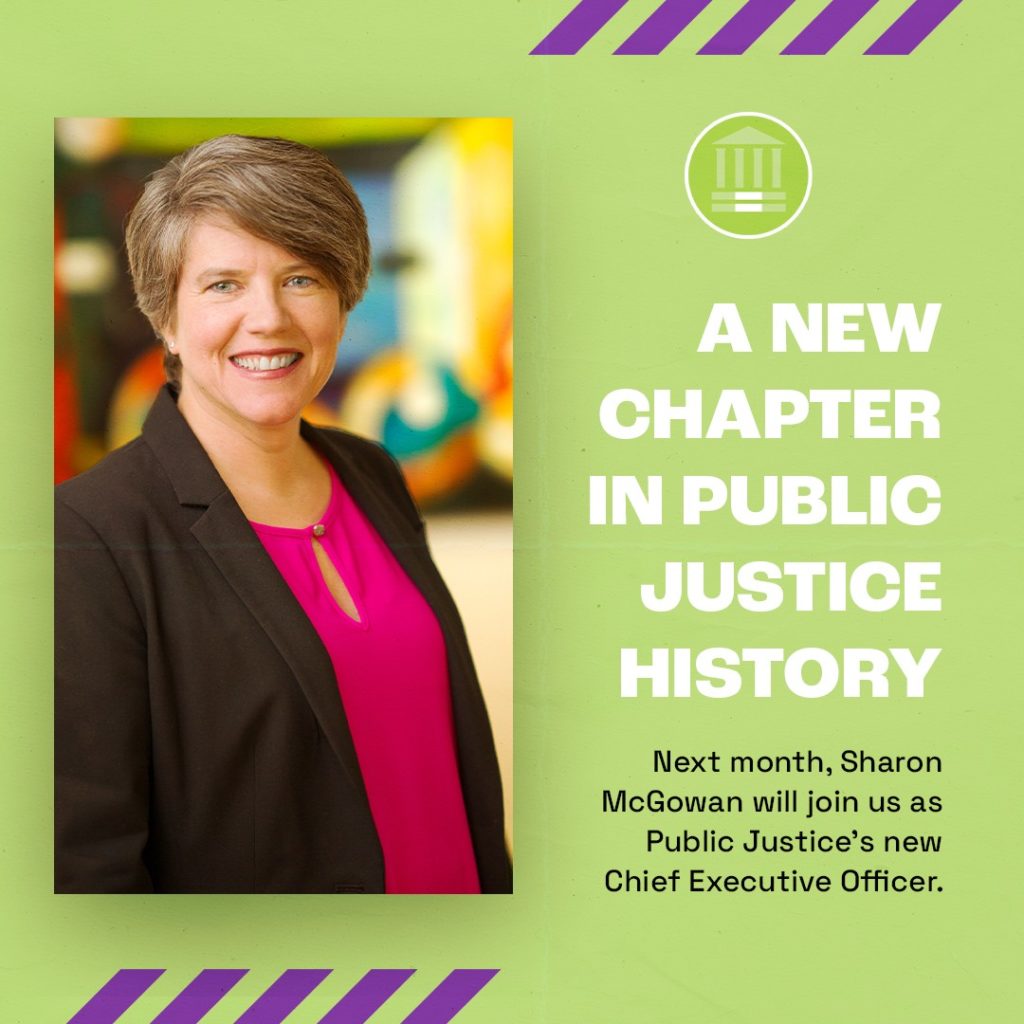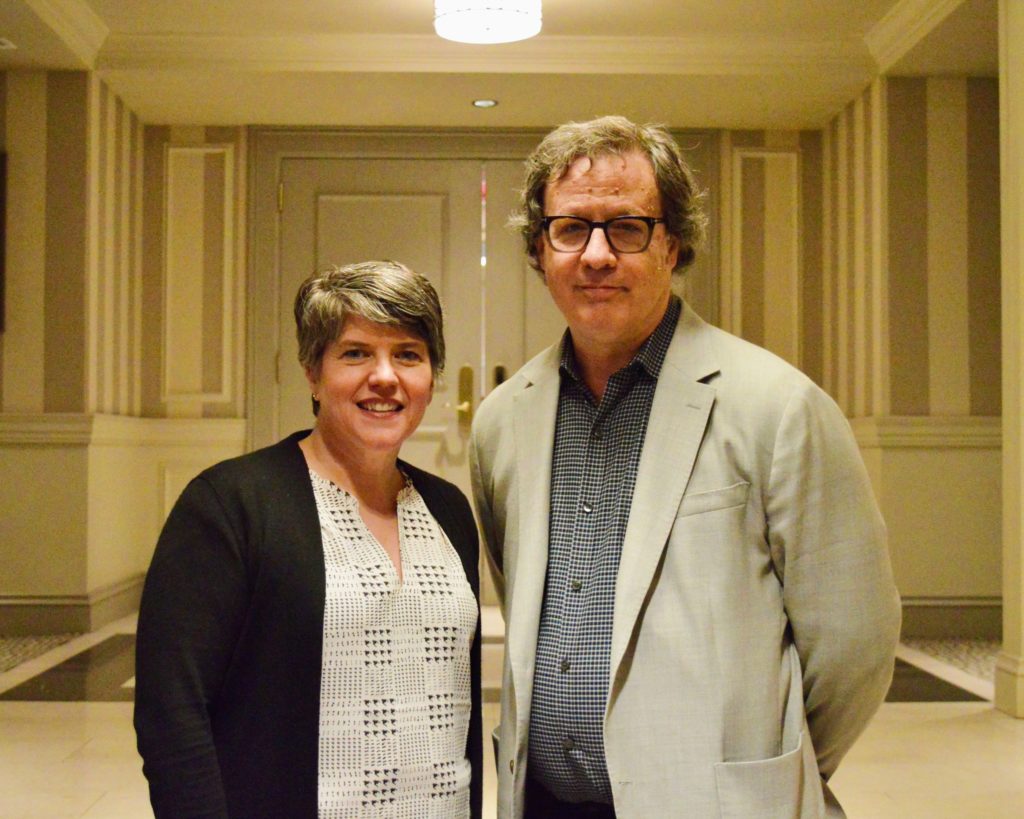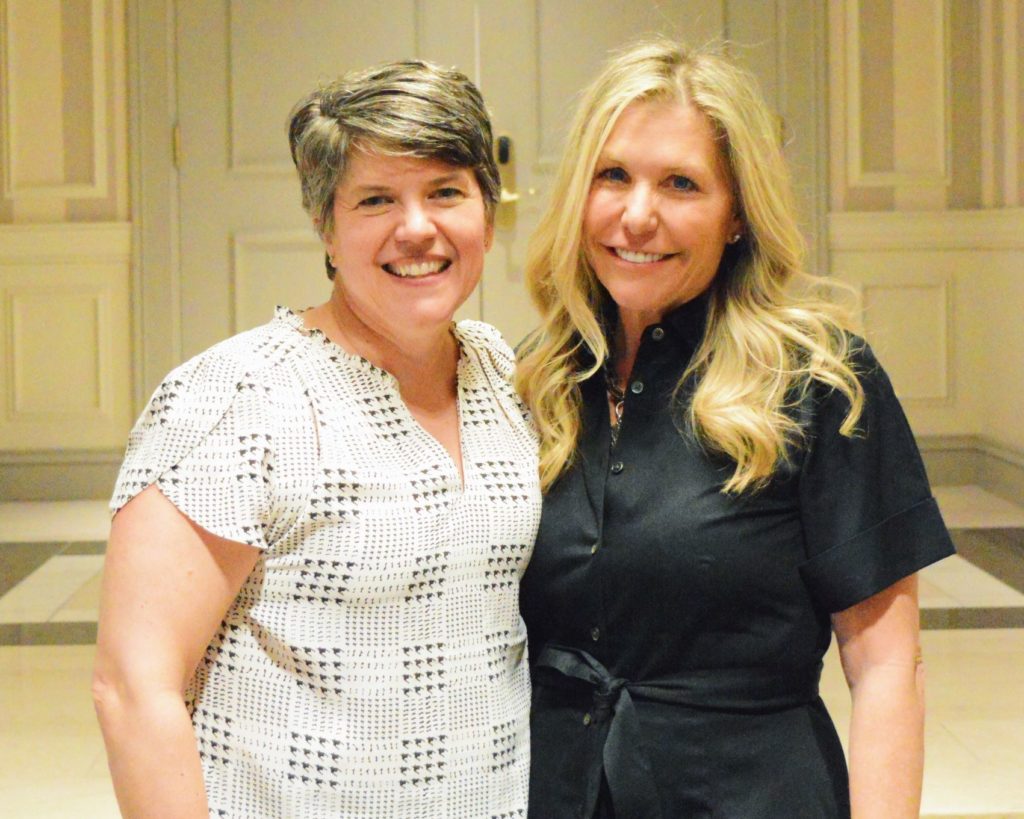
History

HISTORY
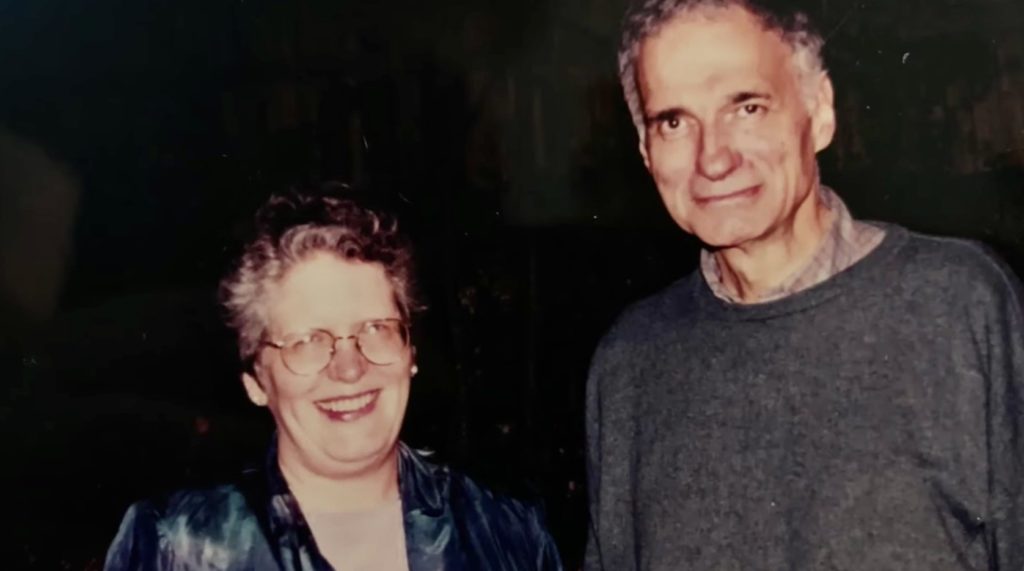

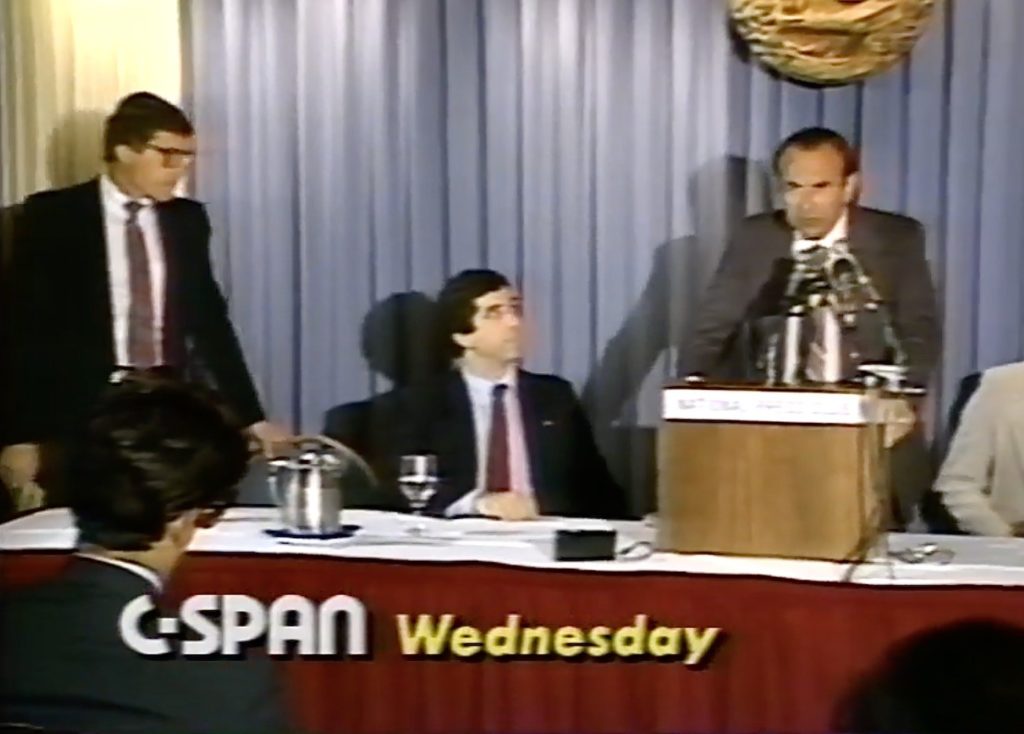
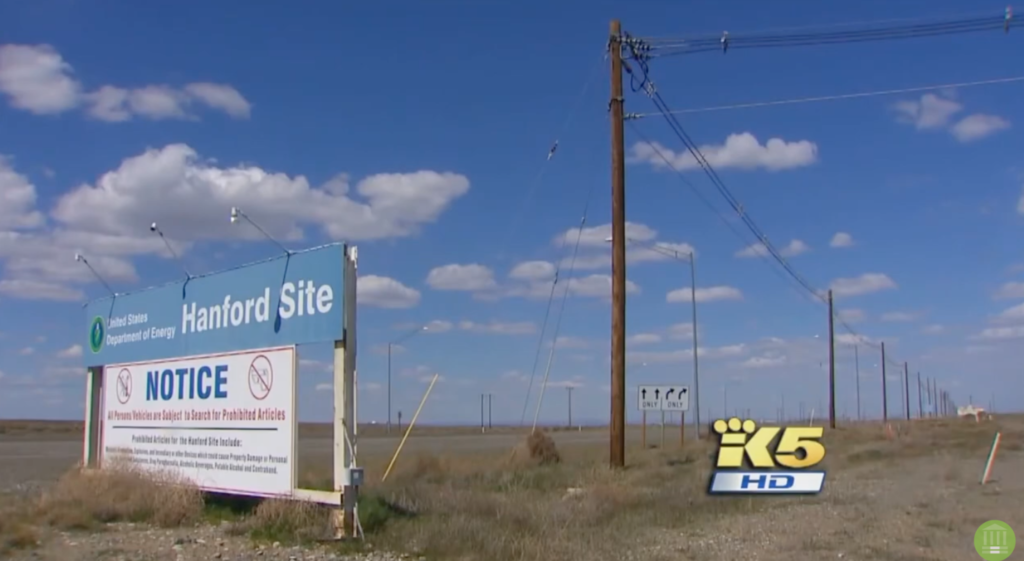
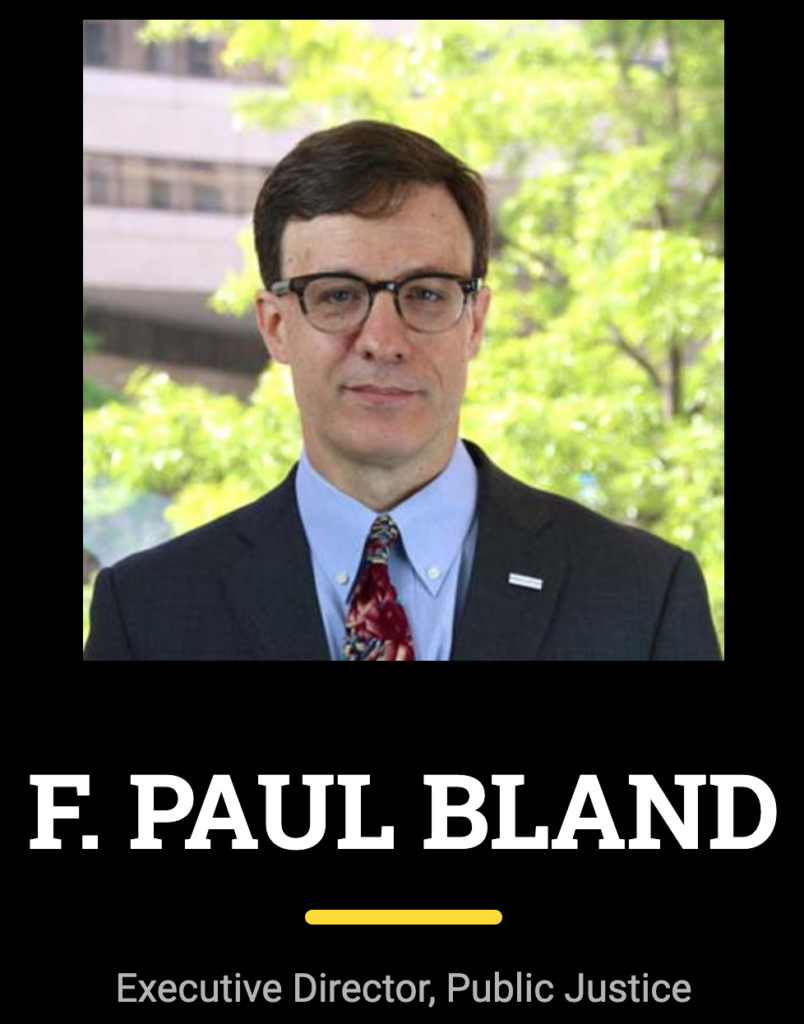
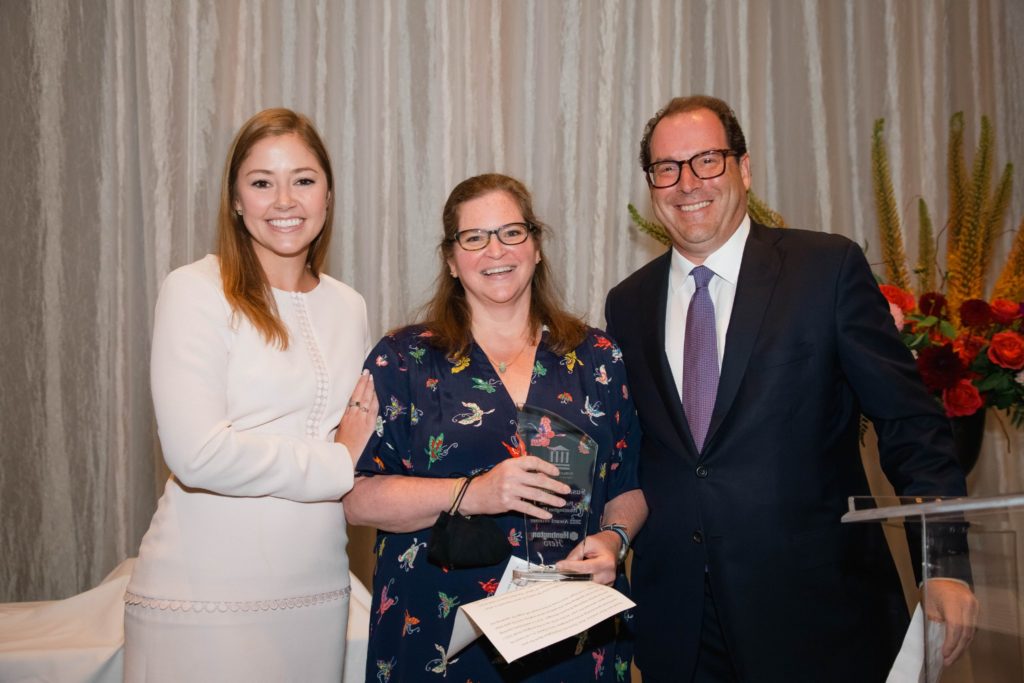

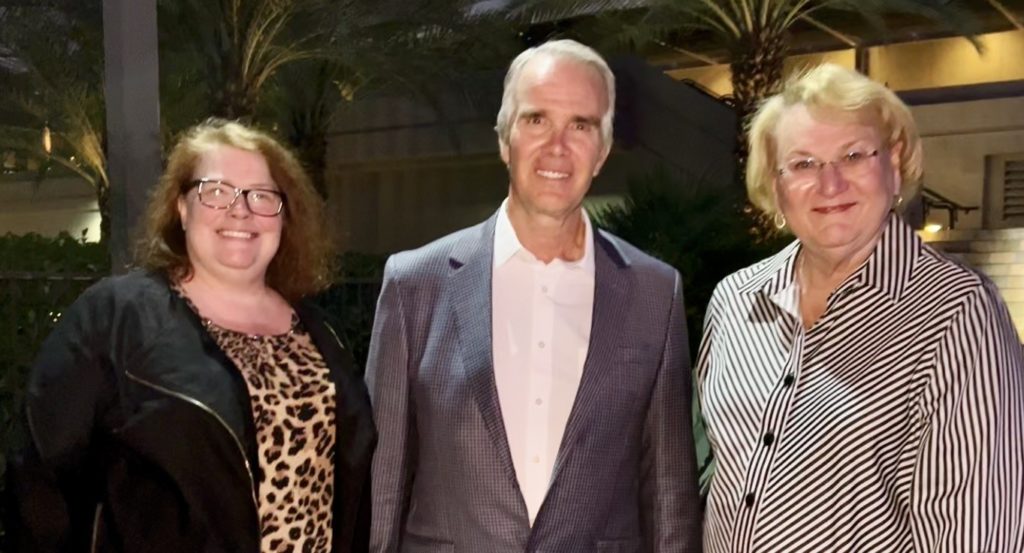
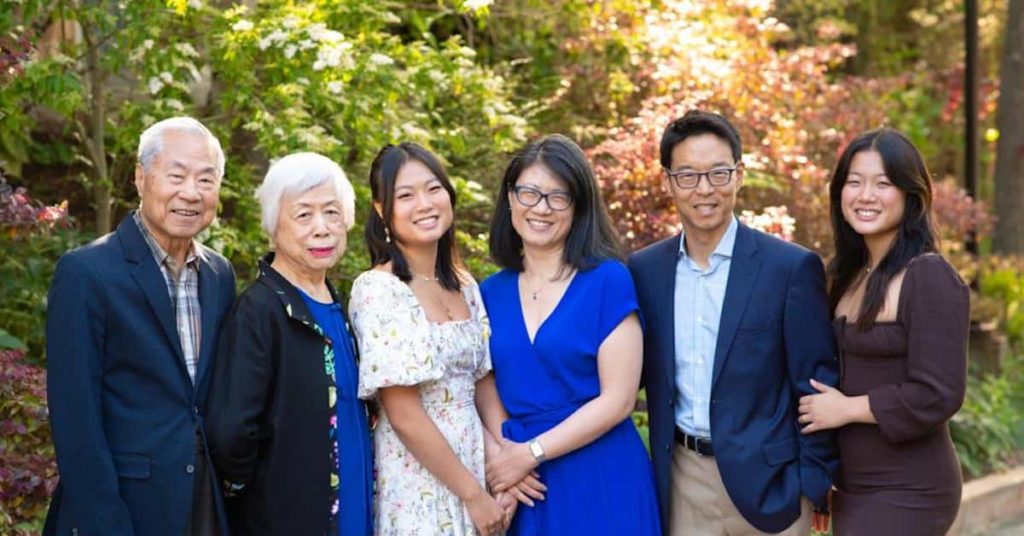

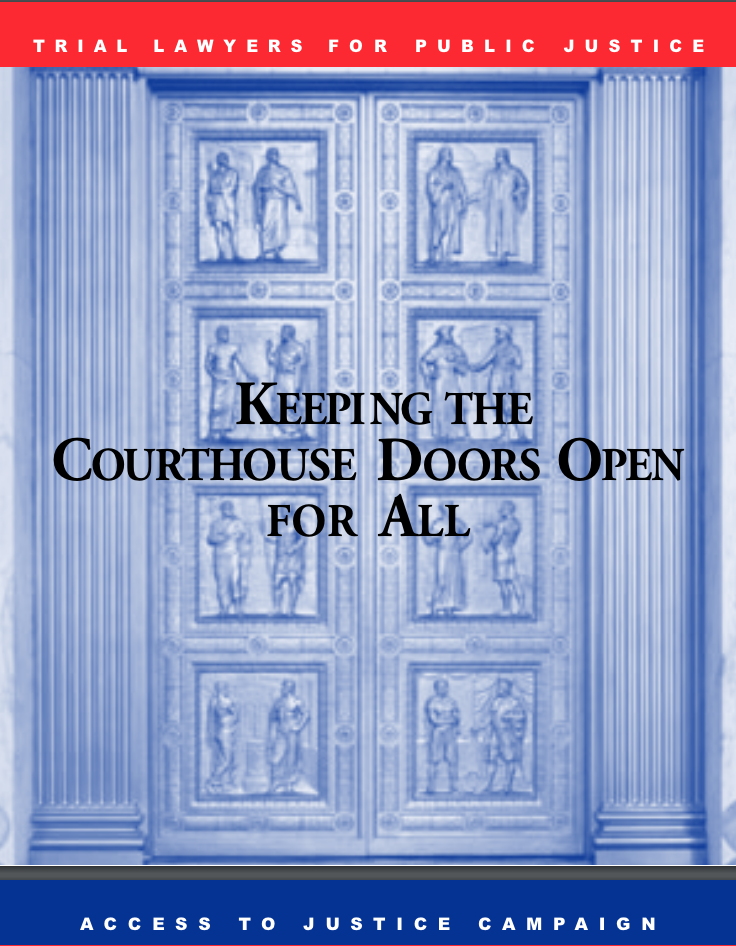
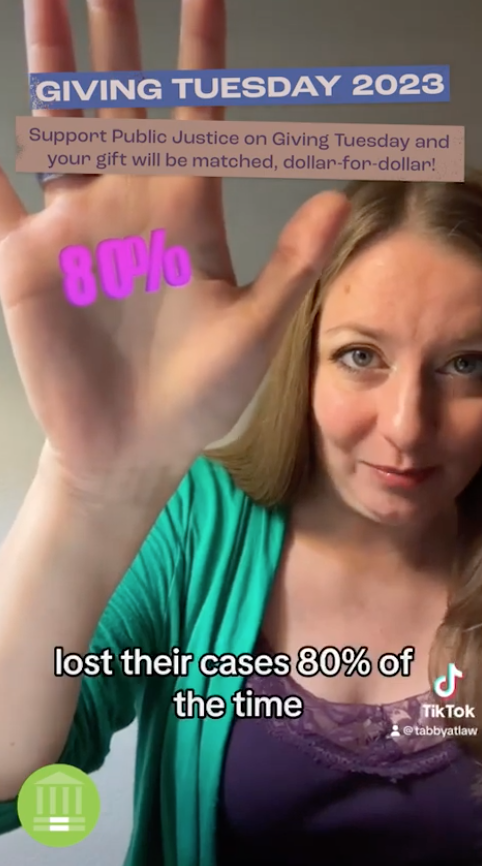
Public Justice’s Long Fight for the Public Good
Public Justice has a four-decade history of waging impactful, important fights on behalf of those harmed by government incompetence, corrupt institutions and unconscionable corporations that place profit over people.
Since opening its doors in January 1982, Public Justice has sought out and litigated cases that protect access to justice and hold accountable those who perpetuate injustice against workers, consumers, young people, women, the unjustly incarcerated, the LGBTQ and marginalized communities and those who have been denied access to our country’s judicial system.
A Short History of Public Justice
In the early 1980s, the founding members of Public Justice were motivated to build a strong, formidable legal force to counter a newly motivated anti-regulatory, pro-business political movement and to create a plaintiffs’ side coalition of advocates who would protect and expand consumer, workers’ and civil rights in the courts and in the court of public opinion.
“Let’s make America great again,” former actor and former California Gov. Ronald Reagan said during his 1980 presidential campaign. His Inaugural Address in 1981 launched a new era of conservativism when he decreed that, “Government is not the solution to our problem. Government is the problem.”
In the introduction to their 1982 and 1983 analyses of the Reagan Administration’s impact on consumer policies and programs, the National Consumer League (NCL) wrote, “Almost every area of vital concern to consumers was adversely affected by the Administration’s relentless drive to deny the role of government in protecting citizens.”
The founders of Public Justice actively responded to the Reagan “revolution” and their concern over the resulting “Tort Reform” movement.
Trial Lawyers for Public Justice
Against the backdrop of the new deregulation movement, consumer rights leader Ralph Nader urged trial lawyers at a June 1980 conference of the Michigan Trial Lawyers Association to create a national public interest law firm to litigate against government and corporations for the public good, without concern for attorney fees or victory.
Discussions continued several months later at the 1980 and 1981 conventions of the Association of Trial Lawyers of America (ATLA).
Nader ally, Joan Claybrook, who previously served as head of the National Highway Transportation Safety Administration (NHTSA), took the lead in recruiting attorneys, with organizational leadership provided by Tennessee attorney and ATLA past president J.D. Lee. By the end of 1981, the founders reached their goal of $200,000 to launch the new organization, thanks to a loan from environmentalist Mike McIntosh. (In 1988, McIntosh returned the repaid loan to TLPJ in the form of grants that enabled the organization to hire Jim Hecker to head the Environmental Enforcement Project.)
On Jan. 31, 1982, using a Tennessee nonprofit established by Lee, the founders incorporated their vision as a new nonprofit organization. At their first organizational dinner in Washington DC in February, the founders selected a board and elected Lee as the first President of what would subsequently be called Trial Lawyers for Public Justice (TLPJ).
Tony Roisman, TLPJ’s first executive director, had been Chief of the Hazardous Waste Section and Special Litigator for Hazardous Waste in the Lands and Natural Resources Division of the U.S. Department of Justice (1979-1982). He was on the first U.S. Chamber of Commerce “hit list” in 1981. “I’m honored to be an enemy of the Chamber of Commerce,” Roisman told the Washington Post.
Senator Ted Kennedy’s office contacted Roisman about what became one of TLPJs first cases after parents from Woburn, Massachusetts testified at hearings about toxic chemical dumping they alleged caused heart, liver, and neurological illnesses and clusters of leukemia deaths in their children. The families wanted to pursue a lawsuit against the companies responsible for the toxic dumping but had been rebuffed by law firms concerned about the magnitude and costs of the project.
Roisman provided TLPJ support, first as lead counsel, then as a consultant on a case filed in May 1982 by a young local medical malpractice attorney representing Woburn families against W.R. Grace, Beatrice Foods and UniFirst.
Believing the case could establish a link between chronic low-leveI exposure to toxins and illnesses like leukemia, Roisman used the Freedom of Information Act to secure a preliminary EPA investigative report that eventually designated Woburn a toxic Superfund site and convinced the judge to schedule the case for trial after years of pretrial maneuvers.
“The Woburn case is a proving ground for establishing the causal connection between exposure to toxic substances and injury,” Roisman, who helped prepare the original complaint, told The Post.
The case ultimately failed for a variety of reasons, including jury instructions from the judge. But Roisman and TLPJ hugely impacted the judicial system by introducing medical and scientific experts as jury witnesses.
“Scientists had been used in cases prior to that, but not to try to convince a jury that what is occurring is tortious and should be stopped,” says TLPJ founder and Past President Bill Trine. “Scientists weren’t being used to show what these corporations were doing.”
Roisman was also a nuclear waste expert and with his guidance, TLPJ filed its first Supreme Court amicus brief in the case of Silkwood v. Kerr-McGee. Karen Silkwood, 28, was America’s first nuclear whistleblower. In 1974, she testified before the Atomic Energy Commission about nuclear contamination and health violations at the Kerr-McGee nuclear facility in Oklahoma. She and her apartment were subsequently found to be contaminated with plutonium. Silkwood later died in a mysterious car crash and documents about the facility’s lax safety record disappeared.
Silkwood’s family sued in 1979. In 1983, the Supreme Court heard arguments over a $10 million punitive damage award. TLPJ’s amicus brief contributed to the successful 5-4 ruling in January 1984 saying the serious nuclear-safety violations could be punished under state law, as well as federal law — overruling Kerr-McGee’s argument for federal exemption — and integrating environmental concerns with healthcare, workers’ safety and civil rights. Silkwood’s story became an Oscar-nominated movie directed by Mike Nichols starring Meryl Streep, Kurt Russell and Cher.
Another early civil rights case, filed by TLPJ co-founder and President Dean Robb, was a federal lawsuit against the FBI alleging responsibility in the March 25, 1965 murder of Viola Luizzo. The white Detroit mother of five children was so distraught seeing police attack freedom marchers in Selma, she went to Alabama to help. She was driving a young Black marcher home when a car with four Klansmen pulled alongside. At least five shots were fired, killing her. Her passenger survived by pretending to be dead.
Robb alleged that the fatal shot was fired by an FBI informant, or he instigated the assassination. After an eight-day non-jury trial, a federal judge ruled on May 28, 1983 that the FBI bore no responsibility for the murder. Though Robb lost, the case inspired others to take up similar causes and forced the FBI to change their practices regarding FBI informants.
In 1984, Roisman hired Arthur Bryant as staff attorney. Following Roisman’s decision to step down from the organization in 1987, Bryant became the new executive director.
An Era of Growth and Impact
Access to Justice
Under Bryant’s leadership, TLPJ’s case docket expanded, diversified and flourished, encompassing some of the most significant litigation in the country.
At the time Bryant took the helm, TLPJ employed a receptionist, had less than 25 annual members, a static budget of $275,000, and few cases to handle. Under Bryant’s leadership, TLPJ’s case docket expanded, diversified and flourished, encompassing some of the most significant litigation in the country. He also launched an Access to Justice campaign to battle wide-ranging efforts to prevent people from using the courts.
In 1998, Staff Attorney Vicky Ni filed a sex discrimination class action lawsuit against Lawrence Livermore National Laboratory, brought on behalf of more than 3,000 female employees who alleged they were denied equal pay and promotional opportunities at “the Lab.” The lawsuit was settled five years later requiring procedural changes, a salary increase and over $10.6 million in damages.
Today, Access to Justice director Leah Nichols leads a team dedicated to securing access to the courts — including protecting the right to file class action lawsuits and fighting against expanded federal preemption, forced arbitration and court secrecy.
Such efforts caught the attention of the Biden Administration. On October 23, 2024, longtime former Access to Justice co-director Karla Gilbride was sworn in as General Counsel of the U.S. Equal Employment Opportunity Commission (EEOC), their first general counsel with a known disability. She is serving alongside former Public Justice Board member Kalpana Kotagal who was sworn in as EEOC Commissioner in August 2023.
Environmental Enforcement
Slowly, TLPJ began to grow. The Environmental Enforcement Project (EEP), another early initiative under the leadership of Jim Hecker, won the largest Clean Water Act or Clean Air Act settlements at the time in Arkansas, New Jersey, Tennessee, and Texas and is credited with almost single-handedly impeding mountaintop removal mining in the U.S. A subsequent book outlined EEP strategies. Today, among other campaigns, EEP, the Sierra Club and others are fighting to stop open-top coal-carrying trains in transit from polluting the air and water with harmful heavy metals and deadly toxic chemicals in pass-through communities such as Lambert’s Point, Virginia.
In 2015 and in 2016, EEP sought to protect workers from exposure to toxic vapors at the Hanford Nuclear Site in Washington State where the Department of Energy stored over 56 million gallons of radioactive and chemical waste from decades of plutonium production for nuclear weapons. A settlement was finally reached in 2018.
New EEP director Dan Snyder takes protecting the environment personally: “Being able to physically touch trees that you saved — it’s almost surreal.”
Students’ Civil Rights
Bryant also ardently pursued precedent-setting Title IX cases, including a major Court ruling finding that Brown University violated Title IX by demoting women’s gymnastics and the volleyball teams from university-funded to donor-funded varsity status. The precedent-setting ruling was affirmed on appeal and the Supreme Court declined to hear Brown’s petition.
Today, under the direction of Adele Kimmel, the Students’ Rights Project (SCRP) continues the organization’s Title IX advocacy — including an ongoing case seeking justice for sexual abuse survivors of former Ohio State doctor Richard Strauss –and, more recently, on behalf of LGBTQ and nonbinary people. In March 2023, SCRP won a significant settlement for Camika Shelby, mother of bullied out Black gay teen Nigel Shelby who died by suicide in 2019. The case, focused on both Title VI and Title IX, forced Huntsville, Alabama’s Board of Education to make major pro-LGBTQ policy changes.
Fighting the Criminalization of Poverty & For-Profit Prisons
In 2005, Past President Bill Trine (1988-1989) brought a case to TLPJ suing a for-profit Colorado county jail for violating the rights of Moises Carranza-Reyes, an undocumented Mexican immigrant who spent one-week detained with no charges in a squalid jail that denied him sanitary housing and adequate medical care, resulting in an infection that cost him a leg, part of a lung, and nearly took his life. In December 2007, Park County’s insurers settled the case for $1.5 million — generating an avalanche of hate-mail.
In May 2012, a Los Angeles County Superior Court jury blamed the State of California for the wrongful death of Francisco Castaneda and awarded his daughter $1.73 million. Between December 2005 and March 2006, medical personnel in two state facilities ignored Castaneda’s pleas for a cancer biopsy after a lesion on his penis metastasized. Released in February 2007, Castaneda’s penis had to be amputated. The 36-year-old died a year later.
Currently, in coalition with Civil Rights Corps, Public Justice’s Debtors’ Prison Project (DPP), under the direction of Leslie Bailey, successfully argued Urquidi v. City of Los Angeles in L.A. Superior Court, winning an injunction against required cash bail for impoverished pre-trial detainees before the judge hears the full case.
Advocating for Just & Sustainable Food and Agriculture
In 2011, attorney Jessica Culpepper created the Public Justice Food Project to transform the food industry with its increased corporate consolidation of “Big Ag.” The Food Project focused on the intersection of food safety, the environment, animal welfare, chemicals, and consumer and workers’ rights.
In 2012, the Food Project undertook a case representing Yakima Valley, Washington community organizations who blamed a cluster of factory farms for contaminating their drinking water with runoff from cow manure. The Environmental Protection Agency had already noted that local wells downstream from several dairies were significantly contaminated with harmful nitrates, bovine antibiotics, and other pollutants. When the dairies failed to correct the problem, Public Justice filed lawsuits in February 2013.
Two years later, a federal judge noted that the Cow Palace dairy had 11,000 cows that created more than 100 million gallons of manure each year. He ruled that solid waste pollution created an “imminent and substantial endangerment” to the environment and to people who drink the water. Five dairies settled in 2015, a precedent-setting victory with national ramifications. Two more Yakima Valley factory farms settled in 2023.
In May 2020, on behalf of Food & Water Watch, the Food Project filed a lawsuit against Smithfield Foods in D.C. Superior Court alleging that the meat processing company exposed their workers to COVID and “repeatedly lied to consumers [about an impending national meat shortage]…so it could protect its bottom line — at the expense of its workers’ lives.” An avalanche of Public Justice-generated publicity forced changes and a paltry citation settlement fee to the Occupational Safety and Health Administration for failing to protect their Sioux Falls, South Dakota workers. Since Smithfield refused to admit wrongdoing, the agreement also notes that the settlement cannot be used in any other litigation by affected workers. After a series of obstacles, the lawsuit was allowed to move forward.
(In late 2023, the Food Project left Public Justice to become FarmStand.)
Making an Impact. Creating lasting Change.
In 2006, TLPJ became Public Justice. And, after 30 years as executive director, Bryant stepped down, replaced in 2016 by Paul Bland, who had served as a staff attorney since 1997.
Bland, a prolifically successful litigator, speaker, and national expert on mandatory arbitration, accelerated Public Justice’s evolution towards advocacy through diversity, equity and inclusion (DEI) trainings and overseeing a new Strategic Direction plan focused on impact litigation, strategic coalition building and strategic communications — such as the three-part New York Times series on forced arbitration.
In 2019, Bland gave the successful oral argument before the U.S. Supreme Court in Home Depot, U.S.A. v. Jackson to deny giving the corporate bemouth an unfair advantage over the scammed consumer. The surprising 5–4 majority opinion was written by Justice Clarence Thomas.
Public Justice won another Supreme Court victory in 2019 with Justice Neil Gorsuch writing the 8-0 decision in New Prime Inc v Oliveira. The Court ruled that transportation companies like New Prime cannot rely on the Federal Arbitration Act to force workers alleging wage theft or sexual harassment out of court by citing a forced arbitration provision in employment contracts. New Prime trucking company was alleged to have misclassified its drivers — such as plaintiff Dominic Oliveira — as independent contractors who were not paid minimum wage and found company business expenses deducted from their paycheck. The victory has wide-spread ramifications.
On May 23, 2022, the Supreme Court issued another unanimous ruling favoring Taco Bell workers in Morgan v. Sundance. In a Slate article headlined, “SCOTUS Just Handed Workers Who Sue Their Employers a Surprising, Unanimous Win: How Public Justice’s Karla Gilbride persuaded all nine justices to rule against corporate malfeasance,” Mark Joseph Stern called the decision “a bit gobsmacking.”
Bland, whose tenure as executive director ends in May 2024, recently noted: “I’m incredibly proud that, every day, the team here at Public Justice embodies the call of the late civil rights icon and Congressman, John Lewis, to cause ‘good trouble.’”
Public Justice celebrates others who cause “good trouble” in the public interest, too. Originally created as a fundraiser, the Trial Lawyer of the Year Award has become the Academy Awards for trial lawyers, honoring their hard battles to win justice for their clients and for the common good. The 2001 book Fighting for Public Justice: Cases & Trial Lawyers That Made a Difference documents the finalists and winners during the first two decades of Trial Lawyers for Public Justice.
The Champion of Justice Award is given to an individual with a history of fighting injustice — famed Black civil rights attorney Ben Crump, for example, was honored in 2021.
Perhaps the most moving of honors is the Illuminating Injustice Award. Created to help those who suffered a significant injury but were inadequately compensated — the award can be literally life-changing.
Rosa Moreno, for example, was a single mother of six who worked an overnight shift six days a week for roughly $400 a month at a LG Electronics-contracted factory in Reynosa, Mexico.
One night in February 2011, cutting metal for flatscreen televisions under pressure from her supervisor, Moreno’s hands got stuck in the heavy machinery and, as she later described for The Guardian, “were flattened like tortillas, mangled, and they both had to be amputated.” LG Electronics offered $400 compensation. A lawyer told her to get a cup and beg at the international bridge.
Moreno and her children struggled for years, failing to successfully sue U.S.-based LG for unsafe labor practices. A Public Justice member nominated her for the 2015 Illuminating Injustice Award and after her selection, she helped shine a light on the plight of forsaken injured workers. “More needs to be done to help the workers who are making the products that so many Americans buy,” she wrote.
The Guardian story caught fire, forcing LG Electronics to apologize and offer a $14,400 settlement under Mexican labor law. Importantly, Rosa Moreno’s story raised awareness and touched the hearts of readers worldwide who sent in donations enabling Moreno to buy flexible prosthetic hands.
It is that mission to impact change, begun in 1982, that inspires Public Justice’s work for the common good, taking on the biggest systemic injustices of our time — destruction of the earth’s sustainability, abusive corporate power and predatory practices, the assault on civil rights, the denial of liberties and opportunities, and the persistent perpetuation of discrimination.
At the end of May 2024, longtime Public Justice attorney and Executive Director Paul Bland stepped down. After an extensive search, the Board unanimously selected Sharon McGowen, the former Chief Strategy Officer and Legal Director for the national LGBTQ litigation/advocacy group Lambda Legal, to serve as the organization’s new Chief Executive Officer. She is the first leader since incorporation to be hired from outside Public Justice.
Our mission goes on.
